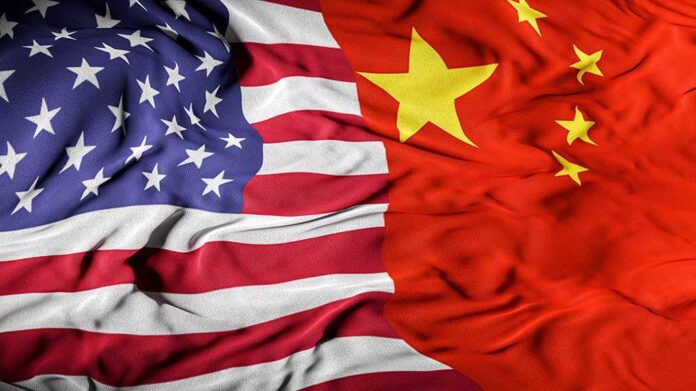
At a Glance
- GOP Rep. Michelle Steel introduces the Secure Our Ports Act to block adversaries like China from U.S. ports.
- Targets state-owned enterprises from China, Russia, North Korea, and Iran.
- Addresses national security concerns related to Chinese companies’ presence in American ports.
- The bill follows recent legislative efforts to prohibit Chinese logistics platforms from U.S. military supply chains.
House Republicans Move to Secure U.S. Ports
House Republicans are introducing a bill aimed at barring China and other adversarial nations from accessing American ports. This measure, driven by growing national security concerns, seeks to protect the United States’ critical infrastructure and safeguard its economic autonomy. The new legislation, called the Secure Our Ports Act, specifically targets companies owned wholly or partially by state-owned enterprises from countries like China, Russia, North Korea, and Iran.
The bill has gained support from several House Representatives, including Stephanie Bice, Ken Calvert, Rick Crawford, Richard Hudson, Doug LaMalfa, Nicole Malliotakis, James Moylan, Aumua Amata Coleman Radewagen, John Rutherford, and Randy Weber. Their support underscores the bipartisan recognition of the potential threats posed by adversarial nations having access to U.S. ports. Republican Rep. Michelle Steel, who is also a member of the House Select Committee on Communist China, emphasized the necessity of this bill for national security and economic stability.
Concerns About Chinese Influence
The measure comes as national security and defense officials express concerns over Chinese equipment at U.S. ports, potentially being used for surveillance. China-owned conglomerates such as COSCO and COFCO currently have a presence in American port infrastructure, raising alarms about foreign influence. Southern California, represented by Rep. Steel, is home to two of the largest ports in the U.S.—the Port of Los Angeles and the Port of Long Beach—making the issue particularly pertinent there.
The U.S. Congress has already passed legislation banning the Pentagon from using seaports that rely on the Chinese logistics platform LOGINK. This platform tracks cargo and ship movements, allowing Beijing to monitor America’s military supply chains. The ban forms part of the National Defense Authorization Act (NDAA) for fiscal 2024 and will take effect six months after being signed by President Joe Biden. Studies are mandated to analyze how foreign influence at the 15 largest American container ports could impact national and economic security.
Implications for U.S. Infrastructure
Rep. Steel underscored the importance of legislative actions like the Secure Our Ports Act, stating that they “would shore up America’s economic and national security in the face of threats from Communist China and their like-minded allies.”
Understanding LOGINK’s extensive reach, the U.S.-China Economic and Security Review Commission (USCC) noted that the platform’s visibility into global shipping “could enable the Chinese government to identify U.S. supply chain vulnerabilities and to track shipments of U.S. military cargo on commercial freight.” The amendment to the NDAA prohibits federal funding for any port using LOGINK and requires the Secretary of State to negotiate with allies to eliminate its use in their ports within six months.
House GOP rolling out bill to block China from accessing US ports https://t.co/aBlIaOvTdc
— Fox News (@FoxNews) September 13, 2024
Future of U.S. Port Security
The legislation calls for the development of an alternative to LOGINK, a task which could take up to five years. This creates a pressing need for the marketplace to devise a competitive logistics platform to secure America’s supply chains more effectively. While there are no LOGINK port contracts in the U.S., its presence in over 60 nations poses a significant challenge. Recent inspections of Chinese-manufactured cranes used at major U.S. ports have found no vulnerabilities, but the need for heightened security measures persists.
The impact of these measures on ports worldwide utilized by the U.S. military is still being assessed. Some European leaders were previously unaware of LOGINK’s extensive monitoring capabilities. The Secure Our Ports Act represents a critical legislative effort to safeguard American infrastructure from foreign influence and to maintain national security in an increasingly interconnected world.
Sources:
House GOP rolling out bill to block China from accessing US ports
House GOP rolling out bill to block China from accessing US ports
US House passes bill to force ByteDance to divest TikTok or face ban
US Bans Pentagon From Using Chinese Port Logistics Platform
House Report Warns That Chinese Cyber Spies Have Eyes on U.S. Seaports
Congress takes up a series of bills targeting China, from drones to drugs
Biden administration warns Congress about China’s major presence at critical US ports












